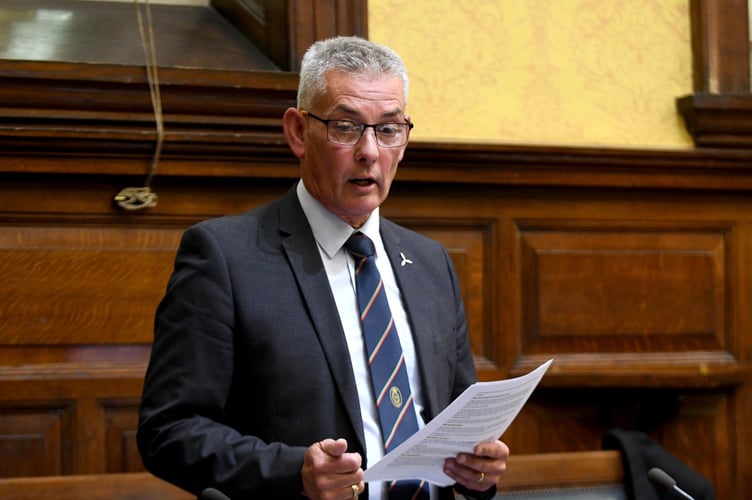A scheme aimed at helping people onto the property ladder has been scrapped because of a lack of interest.
The mid-rent scheme was introduced in 2018 to help first-time buyers save for a house deposit who were not eligible for public sector housing.
This meant the Department of Infrastructure (DoI) introducing a ‘mid-rent’ initiative, where a small number of properties were to be let at prices 20% below the market rate, to allow tenants to save enough cash to purchase their owns home.
Only those who’ve never previously owned property could apply and must have earnt below a certain income.
Each tenancy lasted for only 12 months and tenants had to demonstrate they’d found the mid-rent scheme beneficial towards saving for a new home.
At this week’s Tynwald sitting Arbory, Castletown and Malew MHK Tim Glover asked the DoI Minister Tim Crookall why the mid-rent pilot scheme has ended.
Mr Glover told parliament that, if successful, the pilot was to be developed as a new affordable housing product subject to funding.
But during the pilot, legal advice revealed the scheme could only be in place to directly aid property purchase which mid-rent did not do and this prompted a review of the scheme’s viability.
Mr Crookall explained: ‘The pilot scheme did not work as intended because it attracted relatively low demand with a total of 49 applications received during the five-year period.
‘At the time the decision was taken to formally close the pilot scheme, there were 20 applications on the register of interest. The department recently contacted 17 of those to determine if they were still interested in mid-rent properties and they all indicated they were uninterested in proceeding.
‘Also, a first-time buyer is likely going to need more than £10,000 to cover a minimum 5% deposit for a very modest first-time buyer home in addition to covering the legal fees that would be required. It would take a mid-rent tenant around five years to save the sufficient funds and this is considered too slow.
‘Of the 14 households who had tenancies in mid-rent housing since 2018 only three went on to purchase their first home leaving the scheme. The other 11 households turned to the private sector. Feedback received from applicants indicated they were not able to save enough deposit to afford a home.’
Mr Crookall told parliament the department aims to provide an update to Tynwald in the autumn with proposed improvements being progressed in relation to the current financial assistance schemes for homeownership. He said he was not giving up on providing a similar scheme in the future.
He said: ‘This should absolutely be part of the schemes available to people and we just need to find the right balance to make it work. I believe there is a right way of making this work and we will try it again.’
The five Colby properties involved in the scheme have been returned to the local housing stock.
Mr Crookall continued: ‘The department hasn’t failed, I think it was the scheme that failed. It failed because applicants were not able to save enough money for a deposit and move forward. I am more than happy to go away and find a way to make it work.’




